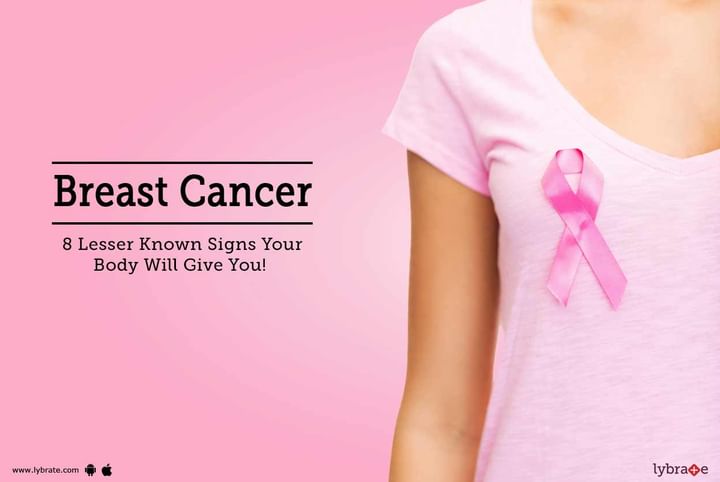Breast Cancer - 8 Lesser Known Signs Your Body Will Give You!
Breast cancer is the most common forms of cancer in females, affecting one in every eight women in the US. There are huge awareness campaigns, which revolve around ways to recognize if you are prone for it and how to identify the disease in its early stages. Knowing the symptoms can help in early diagnosis and thereby early intervention and better prognosis.
How and why of breast cancer?
The breasts produce milk through the glands, which also contain connective tissue including fat, fibrous tissue, nerves, blood vessels, etc. The milk reaches the exterior through a fine network of ducts. Most cancers develop as small calcifications in these ducts, which continues to grow and spread to distant organs.
Warning signs and symptoms: Given the high incidence of breast cancer, knowing the symptoms helps in early identification. Read on to know more, especially if there is a family history.
- Any change in the size, shape, or contour of the breasts
- Appearance of a lump in the breasts or the armpits
- Presence of a clear or bloody discharge from the breast
- The breast or the nipple turning red
- Sudden thickening of breast tissue or skin that continues for a while
- Change in the feel or look of the skin (dimpling, puckering, scaliness, reddishness, warmth, etc.)
- Hardening of the tissue under the breast skin
- Difference in appearance or feel of one area in comparison with other areas
The presence of any of these or a combination of these symptoms should be an indication for a detailed checkup. As mentioned, early diagnosis helps in reducing complications and improving prognosis. It is also good to know risk factors, which also indicate if you need to watch for symptoms.
- Family history: Breast cancer runs in families, and if you have a first-degree relative with breast cancer, watch out for symptoms.
- Tested positive for BRCA1 and BRCA2
- Family history of other cancers
- Age: Women over the age of 50 are at an increased risk of developing breast cancer.
- Race: Caucasian women carry greater risk than African-American women.
- Hormones: Increased use of estrogen increases the chances of developing breast cancer. Therefore, women who have used birth control for long time or are on hormone replacement are at greater risk.
- Abnormal gynecologic milestones: Women who have abnormal menstrual milestones are more predisposed to developing breast cancer. For instance, girls who attain menarche before age of 12, get pregnant after 30, and reach menopause after 55. Women with menstrual irregularities including cycles earlier than 26 days and later than 29 days are also likely to have hormonal issues and are, therefore, at higher risk of breast cancer.
- Other factors: Smoking, alcohol abuse, and obesity also increase the chances of a woman developing breast cancer.



+1.svg)
